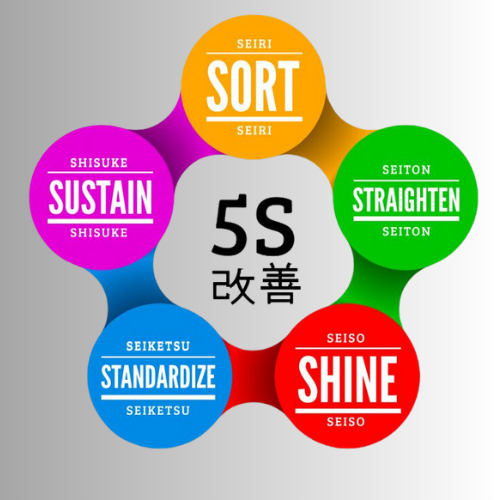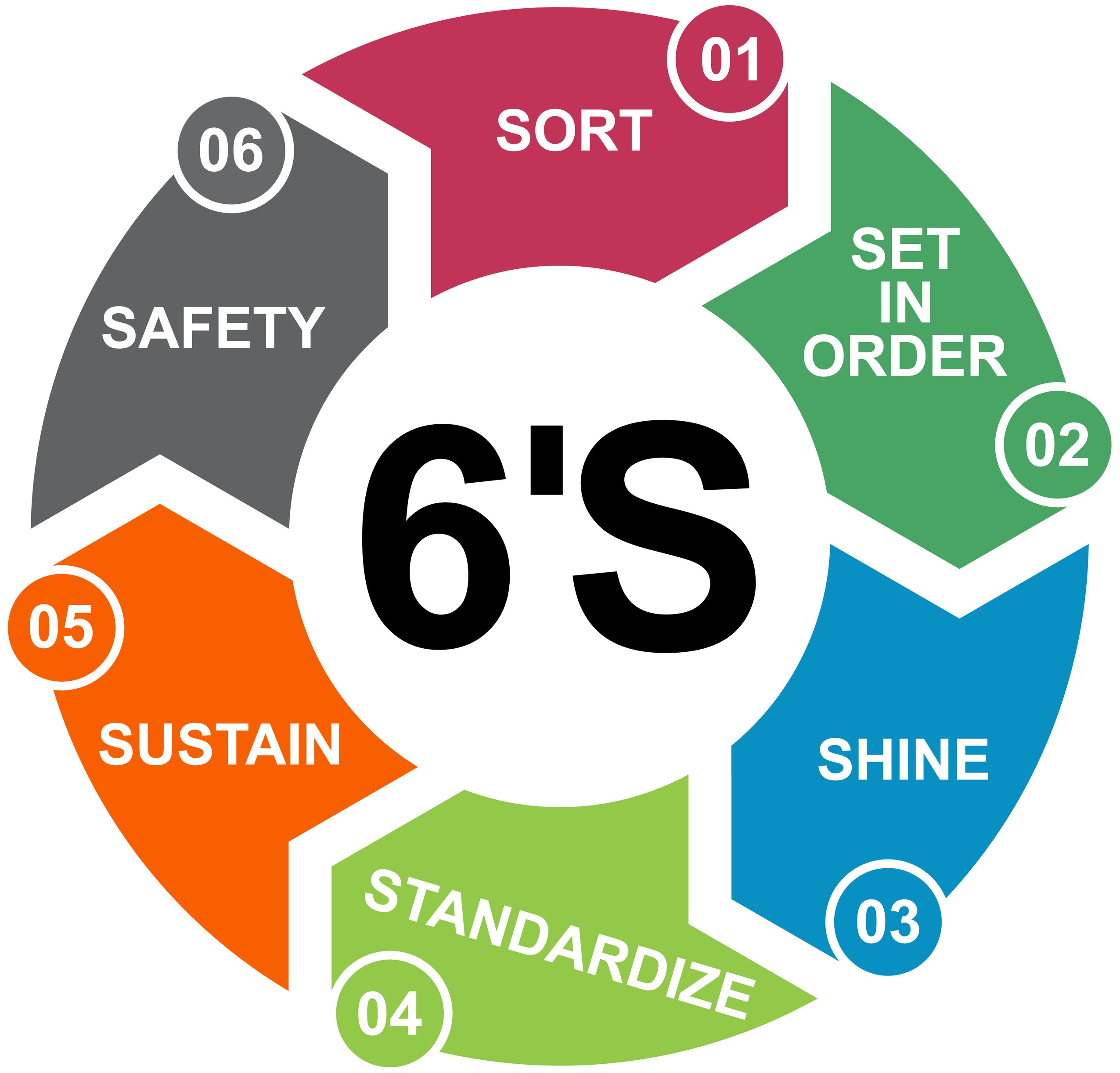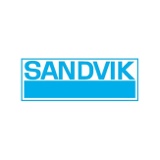5S + Safety Audit
-
Site conducted
-
Conducted on
-
Prepared by
-
Work Area
-
provide specific location or work area
-
Shift
-
provide specific shift schedule
Evaluation Criteria
1S - Seiri or Sort
-
Seiri or Sort is the first step in 5S, it refers to the sorting of the clutter from the other items within the work area that are actually needed. This stage requires the team to remove all items that clearly do not belong in the working area and only leave those that are required for the processes in question.
-
1. Only and all the required materials, WIP and stock present in the work area
- Great Results
- Above Average
- Average Results
- Little Effort
- No Effort
- N/A
-
2. Only and all the required tools and equipment are present in the work area
- Great Results
- Above Average
- Average Results
- Little Effort
- No Effort
- N/A
-
3. Only and all the required paperwork is present in the work area (signage)
- Great Results
- Above Average
- Average Results
- Little Effort
- No Effort
- N/A
-
4. Only and all the required items (furniture, rails etc.) are in the work area
- Great Results
- Above Average
- Average Results
- Little Effort
- No Effort
- N/A
2S - Seiton or Set in order / Straighten
-
Seiton or Set in order / Straighten is the process of taking the required items that are remaining after the removal of clutter and arranging them in an efficient manner through the use of ergonomic principles and ensuring that every item “has a place and that everything is in its place.”
-
5. Locations for all materials, WIP, stock and scrap in the Work area exists and are accessible
- Great Results
- Above Average
- Average Results
- Little Effort
- No Effort
- N/A
-
6. Check Sheet for Shadowboards is filled out and signed
- Great Results
- Above Average
- Average Results
- Little Effort
- No Effort
- N/A
-
7. Locations for all Equipment (incl. Cleaning equipment / chemicals / bins) and Tools exists and are accessible
- Great Results
- Above Average
- Average Results
- Little Effort
- No Effort
- N/A
-
8. Locations for all necessary Paperwork exists and are accessible
- Great Results
- Above Average
- Average Results
- Little Effort
- No Effort
- N/A
-
9. Locations for all private/personal belongings/areas exists and are accessible
- Great Results
- Above Average
- Average Results
- Little Effort
- No Effort
- N/A
-
10. Walkways and work area boundaries are clearly defined and in place
- Great Results
- Above Average
- Average Results
- Little Effort
- No Effort
- N/A
3S - Seiso or Sweep / Shine
-
Seiso or Sweep is the thorough cleaning of the area, tools, machines and other equipment to ensure that everything is returned to a “nearly new” status. This will ensure that any non-conformity stands out; such as an oil leak from a machine onto a bright, newly painted clean floor.
-
11. Machine Tools and equipment (incl. cleaning equipment) is clean and damage free
- Great Results
- Above Average
- Average Results
- Little Effort
- No Effort
- N/A
-
12. Paperwork and work surface (worktable, shelves, storage containers) are clean and damage free
- Great Results
- Above Average
- Average Results
- Little Effort
- No Effort
- N/A
-
13. Areas of private/personal belongings are clean and damage free
- Great Results
- Above Average
- Average Results
- Little Effort
- No Effort
- N/A
-
14. Walls, walkways, stairs are clean, un-cluttered and damage free
- Great Results
- Above Average
- Average Results
- Little Effort
- No Effort
- N/A
-
15. There are no leakages and garbage are removed consistently
- Great Results
- Above Average
- Average Results
- Little Effort
- No Effort
- N/A
4S - Seiketsu or Standardize
-
Seiketsu or standardize is the process of ensuring that what we have done within the first three stages of 5S become standardized; that is we ensure that we have common standards and ways of working. Standard work is one of the most important principles of Lean manufacturing.
-
16. Standards or Labels exist for all materials, WIP, stock and scrap in the work area
- Great Results
- Above Average
- Average Results
- Little Effort
- No Effort
- N/A
-
17. Standards or Labels exist for all Equipment (incl. cleaning equipment / chemicals / bins) and tools
- Great Results
- Above Average
- Average Results
- Little Effort
- No Effort
- N/A
-
18. Standards or Labels exist for all Paperwork and 6S Board//Tier Communication Board
- Great Results
- Above Average
- Average Results
- Little Effort
- No Effort
- N/A
-
19. Standards or Labels exist for private/personal belongings/areas
- Great Results
- Above Average
- Average Results
- Little Effort
- No Effort
- N/A
5S - Shitsuke or Sustain
-
The final stage is 5S Shitsuke or sustain, ensuring that the company continue to continually improve using the previous stages of 5S, maintain housekeeping, and conduct audits and so forth. 5S should become part of the culture of the business and the responsibility of everyone in the organization.
-
20. The standardize activities are followed (No. 15-18)
- Great Results
- Above Average
- Average Results
- Little Effort
- No Effort
- N/A
-
21. The team closed the points from the last audit (according to action plan)
- Great Results
- Above Average
- Average Results
- Little Effort
- No Effort
- N/A
-
22. The 6S audit result is visible to all, up to date and shared with shop floor and management
- Great Results
- Above Average
- Average Results
- Little Effort
- No Effort
- N/A
-
23. Recognition is given to teams, who get involved in 6S activities
- Great Results
- Above Average
- Average Results
- Little Effort
- No Effort
- N/A
-
24. Cleaning Schedule and Standard is followed
- Great Results
- Above Average
- Average Results
- Little Effort
- No Effort
- N/A
S - Safety
-
This essential step focuses on identifying hazards and setting preventive controls to keep workers safe during work operations and ensure that the work environment meets required safety standards.
-
25. Behaviour that endangers safety is prevented (e.g. open blades, self made tools, wrong/unstable storing of materials/equipment )
- Great Results
- Above Average
- Average Results
- Little Effort
- No Effort
- N/A
-
26. PPE requirements and safety data sheets (incl. chemicals) are displayed/accessible and followed/revised in the area
- Great Results
- Above Average
- Average Results
- Little Effort
- No Effort
- N/A
-
27. Safety equipment (e.g. PPE, fire extinguishers, first aid kits, eye rinses ) is available in the area, revised, clearly identified and unobstructed
- Great Results
- Above Average
- Average Results
- Little Effort
- No Effort
- N/A
-
28. The storage of chemicals is inspected and labelled according to the displayed / accessible requirements (e.g. grounding / ventilation/ collecting container)
- Great Results
- Above Average
- Average Results
- Little Effort
- No Effort
- N/A
-
29. Surroundings of an electrical cabinets/ rooms are marked, damage free, closed and unobstructed (according to local laws)
- Great Results
- Above Average
- Average Results
- Little Effort
- No Effort
- N/A
-
30. Electrical devices in the area (e.g. drills)/ Emergency devices (e.g. Emergency stop)/ machines are accessable/available
- Great Results
- Above Average
- Average Results
- Little Effort
- No Effort
- N/A









